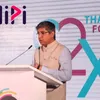Pivot and Persist: Entertainment tech startup rebrands, sees 10X surge as India’s alternative to TikTok
Gurugram-based startup GoParties pivoted from offline events to virtual entertainment during the nationwide lockdown in March. Rebranded as BoxEngage and India’s alternative to TikTok, the platform grew by 10x just a day after the government announced the ban of 59 Chinese apps.
Classes, workplace interactions, weekend getaways, parties…there’s a long list of activities that reflect how humans thrive by interacting with each other as social animals, as clearly stated by Greek philosopher Aristotle and further proven by scientific studies that show human brains are wired to be social.

Shivaarti Bajaj, Co-founder, BoxEngage
So, when struck by the COVID-19 pandemic that called upon social distancing as a safety measure, in India, the average number of hours spent on social media sites increased from 3.13 hours between January 13 and February 2, 2020 to 4.34 hours in the first week of the nationwide lockdown in March.
Clearly, the already growing social networking market saw a momentous surge and that is when entertainment tech startup, GoParties decided to pivot from specialising in offline events to providing virtual entertainment.
The startup was rebranded as in March as entrepreneur Shivaarti Bajaj and her co-founders felt that “things were never going to be the same in the post-COVID-19 era.”
The startup has pivoted from offering real-time data regarding safety, crowd, and entertainment at various outdoor events across India to becoming a platform for digital content creators.
Digital “Atmanirbhar”
The government banning 59 Chinese apps including short video app TikTok, which had amassed more than 200 million users in India in three years, has served as a major push to BoxEngage. The startup’s popularity surged 10 times within a day, according to the founders.
Now home to more than 30 people who gained influencer status on TikTok, Shivaarti says its service goes beyond short-form videos.
She explains, “It's not necessarily a 60 or 90-second snippet. Content creators can make short and long recorded videos, livestream, and celebrities and influencers can also host private sessions to engage with their followers.”
So far, several make-up artists and yoga instructors have hosted virtual classes, and more recently, a Sufi band from Rajasthan livestreamed its performance from the middle of a desert. In this way, the founders of BoxEngage – currently available as a website – is being “vocal for local”.
With more than a million users on board, the platform saw a whopping 70 to 80 percent organic growth and plans to launch a mobile application soon.
“Apart from major data and privacy issues surrounding TikTok, there was a huge debate around the limited social message of TikTok as a digital product. BoxEngage is winning over its Chinese counterpart as it is made in India, with requirements of Indian users in mind,” Varun Bajaj, co-founder, BoxEngage earlier commented, lauding the government initiative to ban Chinese apps.
The market moves forward
Shivaarti was practising as an intellectual property rights attorney, dealing with patents, copyrights, and trademarks, for eight years before taking the plunge with GoParties in 2016.
An event discovery and ticketing platform, it helps users explore various events with real-time data. “One does not need to call friends to check. The experience platform provided information based on the user’s interests and real time data. Suppose you're in MG Road in Bengaluru, the app will show all the venues and who is singing jazz, Sufi, or RnB in addition to crowd quotient and safety of the place as well,” Shivaarti explains.
With more than one lakh users, GoParties was clocking an annual revenue of Rs 1.5 crore. It was also awarded the best emerging live experiences-tech company in India at the Global Entrepreneurship Summit in 2017, attended by PM Narendra Modi and Ivanka Trump, senior adviser to US President, Donald Trump.
Being a ‘woman entrepreneur’
“The path of entrepreneurship, if you're a woman, is just steeper,” she says, as a matter-of-factly, adding that one has to face a few extra odds when it comes to personal life and society, in addition to the usual challenges of profit and loss, while running a business.
The entrepreneur points out that the gender ratio still remains skewed, and entrepreneurship is still a male-dominated bastion, although ease of doing business may have eased for a woman.
Recounting her experiences, Shivaarti says, “The first challenge which nobody talks about is to be taken seriously. At the end of the day, there are very few companies, which have only women founders and you need to have male founders to be taken seriously in a boardroom. These may be the initial speed breakers one must overcome, and they still exist.”
She adds that many venture capitalists may be a little apprehensive to invest in a women-led startup, but a few do invest by looking at the merits of the business and the calibre of the entrepreneur.
At the same time, in terms of business, the entrepreneurs’ initial challenge was to find the right product market fit. Today, Shivaarti and her co-founders claim to be among the first startups to disrupt the entertainment tech space in India and is now moving steadily towards their goals.
YourStory’s Pivot and Persist series spotlights Indian startups that are pivoting to seize new business opportunities, transforming their business models, and offerings to navigate the current COVID-19 crisis.
Edited by Rekha Balakrishnan









